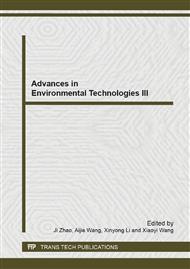p.1561
p.1565
p.1569
p.1574
p.1578
p.1583
p.1587
p.1591
p.1595
Toward the Development of Ecotourism Attitudes among Residents of Wutai Township Following Typhoon Morakot
Abstract:
This study uses a questionnaire survey method to assess attitudes toward the development of ecotourism among residents of Wutai Township following Typhoon Morakot. The results show that residents held positive attitudes toward the promotion of ecotourism. Factors influencing the promotion of ecotourism are tourism service, community development, cultural continuity, and environmental conservation factor. Based on potential differences due to sex, age, and level of education, the results show that aside from significant variations on environmental conservation factors, the remaining factors did not show any significant variations. For the environmental conservation factors, the group of 31-40 year old was more likely to have positive attitudes than other age groups.
Info:
Periodical:
Pages:
1578-1582
Citation:
Online since:
June 2014
Authors:
Keywords:
Price:
Сopyright:
© 2014 Trans Tech Publications Ltd. All Rights Reserved
Share:
Citation:


